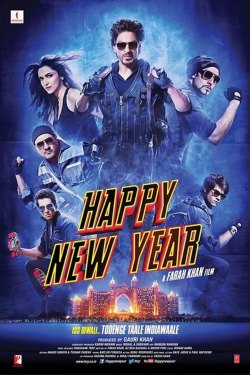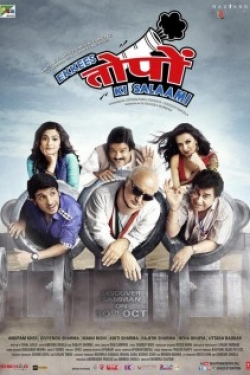Top Rated Films
Sanjukta Sharma's Film Reviews
-
Ek Villain is an ugly ode to misogyny. On the other hand, it is an opportunity wasted for a spectacularly violent film free of middle-class dross.
-
The reward of watching such non-fiction on the big screen, or the magnification of unspoken intimacy and shared history, is a discomfiting thrill. That’s the response Nisha Pahuja’s The World Before Her extracted from me. In the best tradition of American documentary film-making, which allows subjects to speak for themselves and the viewer to absorb what she or he wants, Pahuja’s film about Ruhi, a beauty-contest aspirant from a middle-class family in Jaipur and Prachi, an opponent of that aspiration, is not as much an eye-opener as it is an example of clever, narrative non-fiction.
-
Scenes are elaborate without being flabby, and the humour in the dialogues and situations—never rising above the literal, but sharp—keep the film breezy.
Imagine a utopia which is neither India nor Pakistan, where a whole village laughs and cries watching Hindi films under the desert moon, and despite being hostage to religion-driven fanaticism, the hero uses a film camera to win hearts. -
Hawaa Hawaai needed some sparseness and quiet, but even with all the noise, you will love Arjun and his friends, and cheer them on. In dramatic pitch, Hawaa Hawaai is much more brassy than Stanley Ka Dabba, Gupte’s first film as director, also about an underprivileged child affirming life. The emphasis on melodrama lends the film a soap-operatic quality it doesn’t need, because the story has a linear, classic underdog graph, leading up to a climactic race—a Jo Jeeta Wohi Sikandar, but with a socialist engagement with poverty and its trappings.
-
The Amazing Spider-Man 2 is a love story and the most tender among superhero love stories. That Marc Webb has directed a sequel of a reboot of the friendly neighbourhood superhero means he is taking on the original artist’s imagination. The result is lucrative perhaps, but not that amazing.
-
Like every other genre of films besides romance and action, political satire is a scarce commodity in Hindi cinema. Khan makes one without alienating any kind of audience. Far from being preachy; its politics is utterly engaging.
-
With cut-backs to a shrink’s couch from where Krish is narrating his life, and peppered with songs, the story takes a long road to the climactic wedding in a beautiful temple under cloudy skies—the most beautiful sequence in the film.
The labour and fuss over this cross-state marriage are tedious. From an overblown soap opera, it is unfair to expect better. -
Noah is superbly inventive, but much too overwrought. Aronofsky’s experiment has the kind of seriousness and nerve that makes watching it necessary as well as tedious.
-
A film with heart and piety, Lakshmi suffers because of its cloying literality. Watching it is like reading reams of journalistic writing on child trafficking or watching an NGO documentary lauding their own good work.
-
…ends on the banal note that no matter the vicissitudes, love is all you need. What then was the point of all the humdrum but overwrought conflicts leading up to that realization? They did not tell me anything about the characters. The characters did not evolve or transform, but merely went back to where they were and lived happily ever after.

























